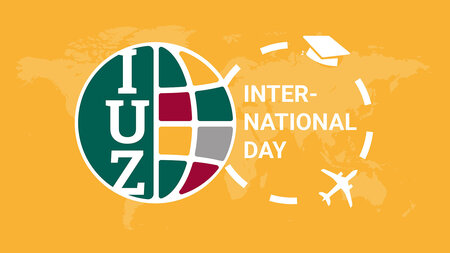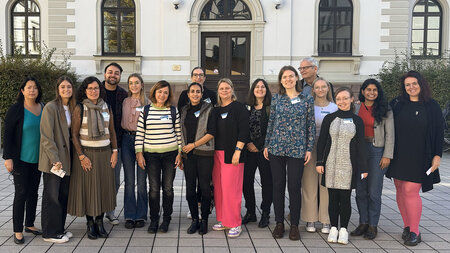Lecturers
The joint project TUC Digital Programs pursues the primary goal of digitising three international English-language Master Degree programmes, in which possible courses of study can range from a classic classroom-based to a hybrid study programme. For teaching, this means a variety of challenges, changes and decisions at all levels. On these pages, you can find out what has been happening in concrete terms in the study programme processes across the universities at Chemnitz University of Technology since 2020, how the study programmes are being converted and with which concrete concepts.
Objectives of the three international Master's programmes
Project goals for all three Master's degree programmes are:
- Improved study entry phase through hybrid orientation formats, digital enrolment and participation in courses, establishment of new support formats, adapted framework organisation.
- Digitisation of practice-oriented courses through new teaching formats with equal participation digitally and in presence in practical courses in the development with the teaching staff.
- Ensuring social and cultural integration/identification in digital studies through opportunities for social connection (fellow students and teachers) and identification with the place of study. This is realised through targeted hybrid exchange formats in Third Places, such as the digital scavenger hunt "Explore (TU) Chemnitz", digital subject mentors, etc.
Master Embedded Systems
1. Enabling electrical engineering practicals in the digital space by providing students with the necessary components and measuring instruments as an experimentation platform "SmartLab" at home and allowing them to experiment flexibly in terms of time and space. Students are instructed and guided in the "practical course for the practical course".
2. Increasing the active participation of students in digital courses through the increased use of hybrid teaching formats that ensure learning progress and promote exchange, communication and interaction.
3. dynamically linkable digital teaching content in a learning platform enables focused student learning, as otherwise redundant lecture components are prepared once and used in the relevant courses from an appropriately prepared pool with cross-references.
Master Advanced Manufacturing
1. students' access to local internship resources in the home country for practice-related project and final theses for the collection of measurement data, in order to be able to gain practical experience with stationary facilities / measurement equipment with local resources in the home country. This is made possible by a "toolbox" (1) and by cooperation partners on site or with the help of widespread technologies such as smartphones (2).
2. Students gain intensive practical learning experience as well as an understanding of the teaching content in hybrid block courses (in presence and digital semester schools as a business game). Methodically realised through (digital) collaboration (design thinking, bar camp). Reference to the place of study is established and concepts are tested and integrated into the curriculum. A blue print is to be created. 3.
3. Digital interaction possibilities with internship experiments in digital study phases through media/hybrid access to stationary production and measuring facilities in order to be able to interact in internships. Automated asynchronous practical experiments with remote access to the laboratory or, alternatively, a digital twin of the experiment as a simulation are envisaged. Physical interaction that cannot be digitised is to be realised in hybrid learning groups. A digital blueprint will be created in the long term.
Master Web Engineering
1. students' access to local internship resources in the home country for p1. On-demand basic modules enable enrolment in the winter and summer semester, as these are adapted organisationally, didactically and in terms of content and are more strongly oriented towards the Web Engineering simulation and digitised in a suitable form (e.g. through flexible learning blocks with multimedia learning content for flipped classroom, on-demand videos, interactive exercise content). The didactic concepts developed will be evaluated and tested twice by means of TAP and recorded as digital blueprints.
2. Digital format for simulating an IT start-up in digital space as a business game enables long-term cooperation between students and business representatives. The business game module is significantly adapted to digital hybrid requirements and addresses the problem of different time zones as aspects of globally distributed development teams in industry. The digital business game will be tested and evaluated. 3.
3. A GDPR compliant collaboration platform enables legally compliant cooperation between students, lecturers and business representatives for the implementation of digital courses and the digital business game. It is necessary to provide access to the potentially large group of people from within the university (students and lecturers) and outside the university (business representatives), who change every semester, and to ensure digital exchange in compliance with the GDPR.





